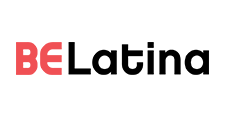ChatGPT in Healthcare: A Potential Game-Changer or a Concern for the Doctor-Patient Relationship?
May 15, 2023

In an era of rapid technological advancements, the healthcare industry finds itself at the forefront of a significant transformation. The integration of artificial intelligence (AI), specifically ChatGPT, has sparked both excitement and concerns regarding its potential impact on the sacred doctor-patient relationship. With its ability to generate human-like responses and provide medical information, many wonder if ChatGPT will revolutionize healthcare or disrupt this crucial bond.
According to a Forbes article, the advent of ChatGPT has the potential to revolutionize the doctor-patient relationship. Driven by AI capabilities, ChatGPT can process vast amounts of medical information, offer personalized recommendations, and even assist with diagnoses. This advanced technology has the potential to augment the capabilities of healthcare professionals and improve patient outcomes.
However, the integration of AI in healthcare is not without its challenges. The Los Angeles Times highlights concerns raised by healthcare experts and patient advocates regarding the readiness of AI, including ChatGPT, for patient care. While AI shows promise, there are concerns about its accuracy, ethical considerations, and the potential for bias in the generated responses. It is crucial to strike a balance between technology and the human touch that defines the doctor-patient relationship.
As per Forbes, the concept of ChatGPT is evolving into “ChatMD” — a generative AI designed specifically for healthcare applications. This transformation indicates the growing influence of AI in the medical field and the potential for AI-powered solutions to enhance patient care. It also highlights the need for rigorous testing, regulation, and continuous refinement to ensure that AI remains a valuable tool rather than a replacement for human expertise.
What does this mean for the healthcare industry?
While the incorporation of AI, including ChatGPT, into healthcare brings forth exciting possibilities, it is important to approach this development with caution. The human aspect of medicine, characterized by empathy, intuition, and the ability to build trust, remains irreplaceable. The doctor-patient relationship is built on mutual understanding, effective communication, and shared decision-making. It is essential to ensure that AI enhances these elements rather than erode them.
Many doctors believe that striking the right balance is key. AI should be viewed as a supportive tool that complements and augments healthcare professionals’ expertise, rather than a substitute for human interaction. With proper training and guidelines, healthcare providers can leverage ChatGPT to assist in tasks such as medical research, documentation, and providing patients with valuable information.
The future of AI in healthcare holds great promise, but it also demands careful consideration of its impact on the doctor-patient relationship. Open dialogue, collaboration between technology developers, healthcare professionals, and patient advocates, and robust regulation will be essential in navigating this evolving landscape.
Ultimately, the successful integration of ChatGPT and AI in healthcare hinges on finding the right balance between technological advancements and preserving the core values of medicine. By leveraging the potential of AI while maintaining the human connection, we can achieve a future where technology enhances, rather than hinders, the doctor-patient relationship. As we embark on this transformative journey, it is essential to prioritize patient well-being and ensure that healthcare remains a compassionate, patient-centered field.


















